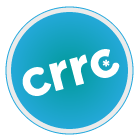Indigenous Peoples
Indigenous peoples number over 300 million and represent approximately 4% of the world’s population.
United by many common experiences, including histories of marginalization and struggles for cultural survival, indigenous peoples are nonetheless each unique and distinct.
Definitions
Who is an Indigenous person? A political and cultural label, Indigenous peoples negotiate their identity/ies in diverse ways. The writers and filmmakers below explore issues of identity, and who "counts" as Indigenous.
"I asked myself: What does being Indigenous mean?" Te Rua Winiata, a Maori from Aotearoa/New Zealand.
Club Native, a film by Tracey Deer
In Club Native, filmmaker Tracey Deer uses Kahnawake, her hometown, as a lens to probe deeply into the history and contemporary reality of Aboriginal identity. Following the stories of four women, she reveals the exclusionary attitudes that divide the community and many others like it across Canada. Deer traces the roots of the problem, from the advent of the highly discriminatory Indian Act through the controversy of Bill C31, up to the present day, where membership on the reserve is determined by a council of Mohawk elders, whose rulings often appear inconsistent. And with her own home as a poignant case study, she raises a difficult question faced by people of many ethnicities across the world: What roles do bloodline and culture play in determining identity?
Key Documents

United Nations Declaration on the Rights of Indigenous Peoples
The Declaration on the Rights of Indigenous Peoples was adopted by the General Assembly on Thursday September 13, by a majority of 144 states in favour, 4 votes against (Australia, Canada, New Zealand and the United States) and 11 abstentions (Azerbaijan, Bangladesh, Bhutan, Burundi, Colombia, Georgia, Kenya, Nigeria, Russian Federation, Samoa and Ukraine). Since its adoption, Australia and New Zealand have reversed their positions and now endorse the Declaration. Colombia and Samoa have also reversed their positions and indicated their support for the Declaration. In March 2010, the Government of Canada announced it would take steps to endorse the UN Declaration and, in April 2010, the United States indicated that it will also review its position regarding the Declaration.
Indigenous Peoples Around the World
Further Reading
The Assembly of First Nations is the national organization representing First Nations citizens in Canada. The AFN represents all citizens regardless of age, gender or place of residence.

The Stolen Sisters campaign is a Canada-wide initiative to focus attention on violence against Aboriginal women.
